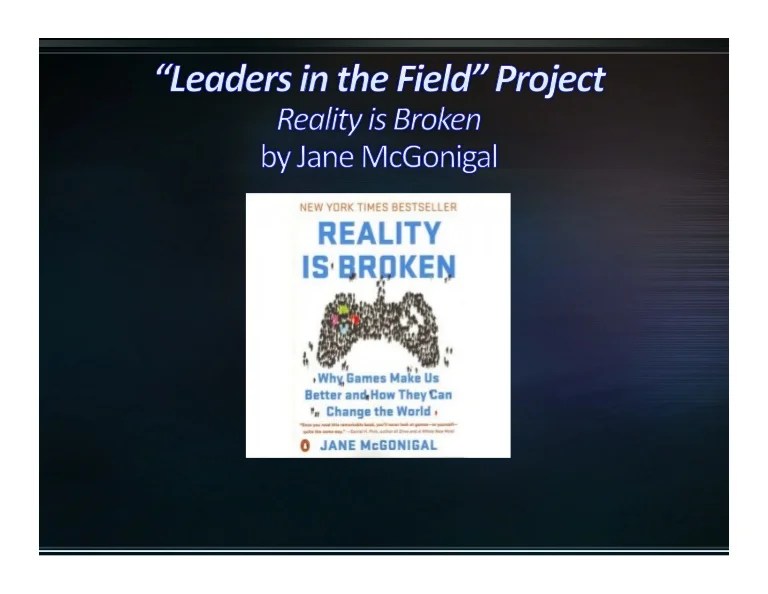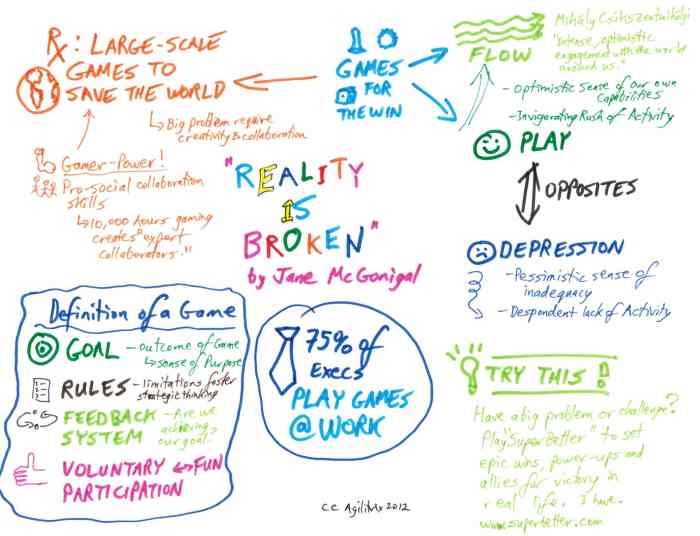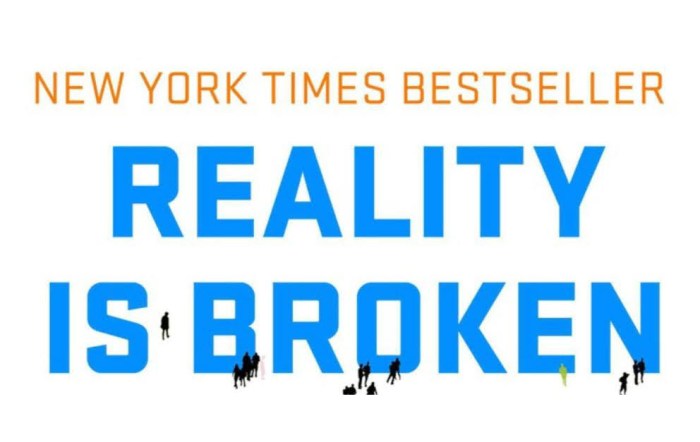Reality is Broken Springboard Answer Key: Unveiling the Causes and Consequences invites readers to delve into a thought-provoking exploration of the concept of “reality is broken.” This concept challenges traditional notions of reality, prompting us to question the very nature of our existence.
The content of the second paragraph that provides descriptive and clear information about the topic
Definition and Meaning of “Reality is Broken”

The concept of “reality is broken” suggests that the way we perceive and interact with the world is fundamentally flawed or distorted. This idea challenges the assumption that our experiences and understanding of reality accurately reflect objective truth.
Interpretations of “reality is broken” vary, but common themes include the influence of cognitive biases, the limitations of our senses and perceptions, and the impact of technology and media on our perception of the world.
Examples of “Reality is Broken”
- The prevalence of fake news and misinformation, which can blur the lines between fact and fiction.
- The echo chamber effect in social media, where users are exposed to a narrow range of opinions that reinforce their own beliefs.
- The increasing reliance on virtual reality and augmented reality, which can alter our perception of the physical world.
Causes and Consequences of “Reality is Broken”: Reality Is Broken Springboard Answer Key

Potential Causes of “Reality is Broken”
- Cognitive biases and heuristics, which can lead to irrational decision-making and distorted perceptions.
- The influence of social media and technology, which can create echo chambers and filter information.
- The rise of fake news and misinformation, which can undermine trust in institutions and experts.
Consequences of “Reality is Broken”
- Polarization and division within society, as people with different perceptions of reality struggle to find common ground.
- Reduced critical thinking and skepticism, as individuals become more susceptible to misinformation and manipulation.
- Erosion of trust in institutions and experts, as people question the validity of information and the motives of those in power.
Approaches to Understanding and Addressing “Reality is Broken”

Methodologies for Understanding “Reality is Broken”
- Philosophy: Examining the nature of reality, perception, and knowledge.
- Psychology: Studying cognitive biases, heuristics, and the impact of social media on our perceptions.
- Sociology: Analyzing the influence of culture, society, and institutions on our understanding of reality.
Potential Solutions or Strategies for Addressing “Reality is Broken”
- Promoting critical thinking and media literacy, to help individuals evaluate information and identify biases.
- Encouraging diversity of perspectives and exposure to different viewpoints, to challenge echo chambers and broaden our understanding.
- Supporting independent journalism and fact-checking organizations, to ensure access to reliable and accurate information.
Ethical and Philosophical Implications of “Reality is Broken”
Ethical Considerations
- The responsibility to seek truth and avoid spreading misinformation.
- The importance of protecting freedom of speech while balancing the need to combat harmful content.
- The impact on individual autonomy and the ability to make informed choices.
Philosophical Implications, Reality is broken springboard answer key
- The nature of reality and the limits of our knowledge.
- The relationship between perception and truth.
- The implications for free will and moral responsibility.
FAQ Overview
What is the concept of “reality is broken”?
The concept of “reality is broken” suggests that our perception and understanding of reality are flawed or incomplete, leading to a sense of disconnection and dissatisfaction.
What are some potential causes of “reality is broken”?
Factors such as technological advancements, social media, and economic inequality can contribute to a sense of reality being broken by creating fragmented and artificial experiences.
What are some consequences of “reality is broken”?
Consequences can include a loss of meaning, increased anxiety and depression, and a diminished sense of purpose and belonging.